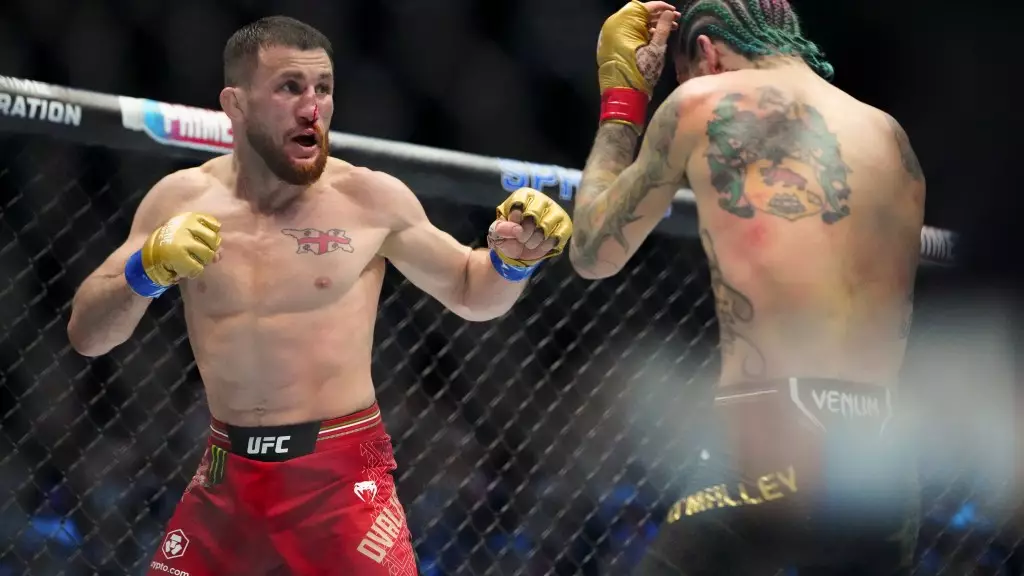In the highly competitive arena of the UFC bantamweight division, the pathway to a title shot is often the subject of heated discussions. Merab Dvalishvili, the current champion, recently voiced his frustration regarding his upcoming challenger, Umar Nurmagomedov. Despite boasting an impressive 18-0 record, Dvalishvili feels that Nurmagomedov has not sufficiently earned his place in the title fight scheduled for UFC 311 on January 18 in Inglewood, California. This sentiment reflects a broader theme within mixed martial arts—meritocracy versus marketability in determining title fights.
Dvalishvili’s discontent is rooted in the rigorous journey he undertook to secure the bantamweight championship. With an 11-2 record in the UFC and a remarkable ten-fight winning streak preceding his title shot, Dvalishvili has invested time, effort, and resilience to reach this pinnacle. His frustration intensifies when he reflects on other top contenders in the division who have also demonstrated their capabilities yet remain sidelined. This scenario raises critical questions about how the UFC ranks fighters and allocates title opportunities, emphasizing the disparity between fighters with genuine merit and those who may have found favor through strategic positioning or promotional appeal.
Dvalishvili’s remarks reveal not just tactical objections, but also a fundamental disagreement regarding attitude and respect within the sport. He criticizes Nurmagomedov for what he perceives as arrogance and a lack of humility. According to Dvalishvili, true success in the UFC is built upon hard work, respect for others, and a willingness to earn one’s accolades. He highlights that many notable fighters, including Mario Bautista, are vying for opportunities, yet Nurmagomedov’s approach has made him a less favorable contender in Dvalishvili’s eyes. This perspective invites analysis of the culture within MMA and how fighters promote themselves, drawing a line between confidence and disrespect.
Despite his grievances, Dvalishvili does not underestimate Nurmagomedov’s abilities. He concedes that the upcoming matchup will be challenging, acknowledging his opponent’s skill set and unique fight style. This duality in Dvalishvili’s narrative—his respect for Nurmagomedov as a fighter while simultaneously critiquing his path to the title—underscores the complexity of competitive sports. It highlights how fighters must navigate both the competitive landscape and the emotional dynamics involved in humanizing opponents while defending their own journeys.
As UFC 311 approaches, the focus will shift to how both Dvalishvili and Nurmagomedov prepare for what promises to be an engaging clash of styles and ideologies. This confrontation transcends mere athletic prowess, adding layers of personal and professional narratives that shape the UFC’s fabric. In a sport where respect hinges on reputation and recognition, Dvalishvili’s outspoken views may ultimately resonate deeper than the Octagon; they reflect the ongoing conversation about equity and integrity within competitive sports.

